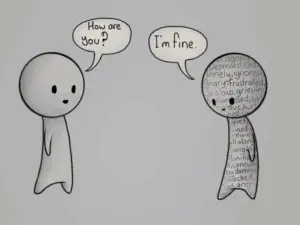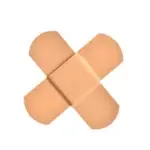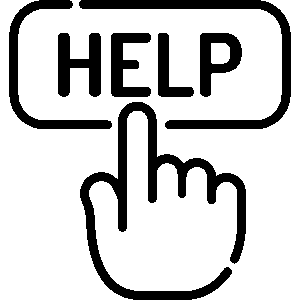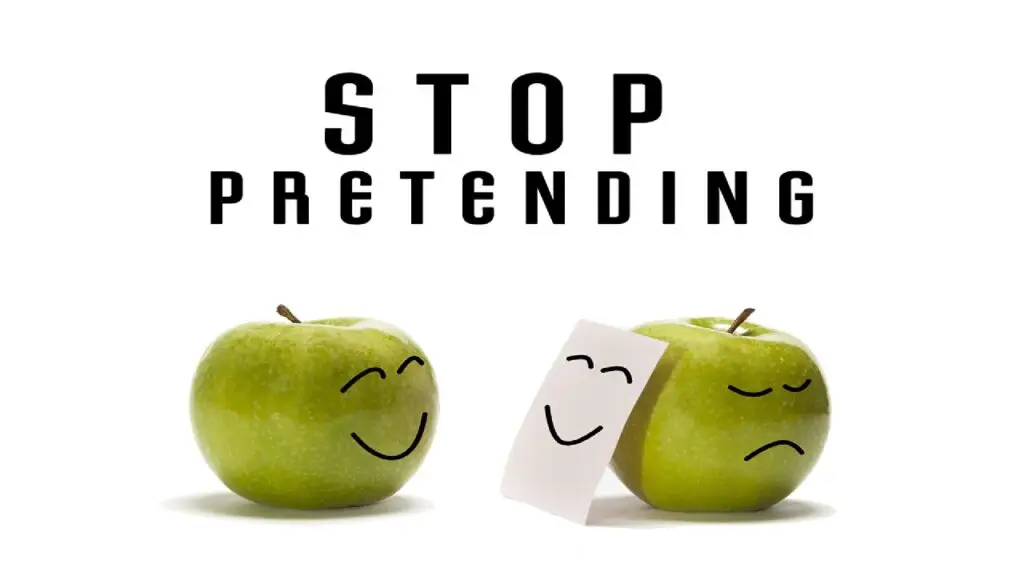We all do it at some point when we run into or greet someone. We’re so programmed to cliché communication that the question comes, almost out of habit:
“How are you?”
And out it slips the cliché answer before we even think —
“I’m fine.”
Fine.
That tired, hollow word.
It’s the easiest mask to wear when the truth feels too heavy or too complicated, or when you just know the person asking doesn’t actually want the real answer.
Because let’s be honest: most people don’t.
They want polite. Quick. Neat.
They don’t want to hear about the chronic pain that gnaws at you every morning before you even get out of bed.
They don’t want to hear about the loneliness that creeps in at 2 a.m.
They don’t want to know how hard it is to hold everything together when your body — or your mind — is constantly threatening to unravel.
So we say it.
“I’m fine.”
Even when we’re anything but.

Time for the Truth..Are You Really Fine?
Let’s sit with this for a second.
Are you really fine when:
You need that glass (or three) of wine every evening just to quiet your mind enough to sleep?
You catch yourself stashing bottles or packets or anything else, telling yourself it’s “just in case,” when really it’s because you can’t face how much you rely on it?
You smile and nod in company, but break down the minute you’re alone?
You avoid mirrors, not because you don’t like how you look, but because you can’t stand to see the hurt staring back at you?
If you’re nodding, if your stomach just tightened a little — then no, you’re not fine.
And that’s okay.
What’s not okay is pretending you are, and slowly letting it eat you alive.
“Fine” Is the Emotional Plaster We All Keep Handy

Somewhere along the line, “fine” became our favourite coping mechanism.
It’s like duct tape slapped over a wound that really needs stitches.
People say they’re fine when they’re carrying the scars of old trauma — childhood hurts, betrayals, things they were never allowed to speak about.
They say they’re fine because somewhere they learned that to show emotion is to be weak, that to admit pain is to burden others.
But here’s the brutal truth:
Pain that’s buried doesn’t stay buried.
It festers.
It leaks out in your relationships, in your health, in addictions, in breakdowns you didn’t see coming.
Addiction Rarely Starts with A Bottle, Over-The-Counter Meds or a Slab of Chocolate
No one wakes up one morning and decides, “Today I’ll start hiding how much I drink/eat /over-the-counter meds or painkillers I take.” Or, “Today I’ll let painkillers, a bottle of wine or a food be the only way I can get through the day.”
It usually starts with pain.
A desperate need to soothe something raw inside you.
A desperate need to feel different — or feel nothing at all.
So you reach for whatever works.
And each time someone asks, “Are you okay?” and you answer, “I’m fine,” you bury that truth a little deeper.
Until one day it’s buried so deep, even you have trouble finding it.

The Cost of Pretending
Pretending you’re fine doesn’t protect you.
It isolates you.
It stops people from truly knowing you, supporting you, loving you as you are.
It traps you in a cycle of shame and secrecy — and you start believing your pain is yours to carry alone.
You don’t always have to be the strong one.
You don’t have to be stoic.
And you sure as hell don’t have to keep lying to yourself (and everyone else) with that one small, loaded word:
“Fine.”
So now what?
If reading this made your chest tighten, or your eyes sting a bit — good.
It means there’s something inside you that’s waking up, whispering, “Pay attention.”
So here’s what you can do:
![]() Tell someone the truth.
Tell someone the truth.
A friend, a therapist, a support group. Just say it out loud: “I’m not okay, and I don’t want to keep pretending.”
![]() Name it.
Name it.
Write it down. Speak it into the mirror. Claim your own story, scars and all.
 Get help.
Get help.
If you know that what you’re dealing with is bigger than you — addiction, depression, trauma — reach out.
There are people who’ve walked this road.
There are places where your pain will be held, not judged.
![]() Choose more than survival.
Choose more than survival.
You deserve more than just scraping by. You deserve to truly live, even if it’s messy and hard.
A Final Word

“I’m fine” is the most common lie we tell.
But real healing?
It starts the moment we stop saying it.
So the next time someone asks, “How are you?”
Pause.
Take a breath. Avoid the cliché answer. And maybe, just maybe, let them see the real answer. Because you were never meant to do this alone.
You don’t have to keep pretending.
